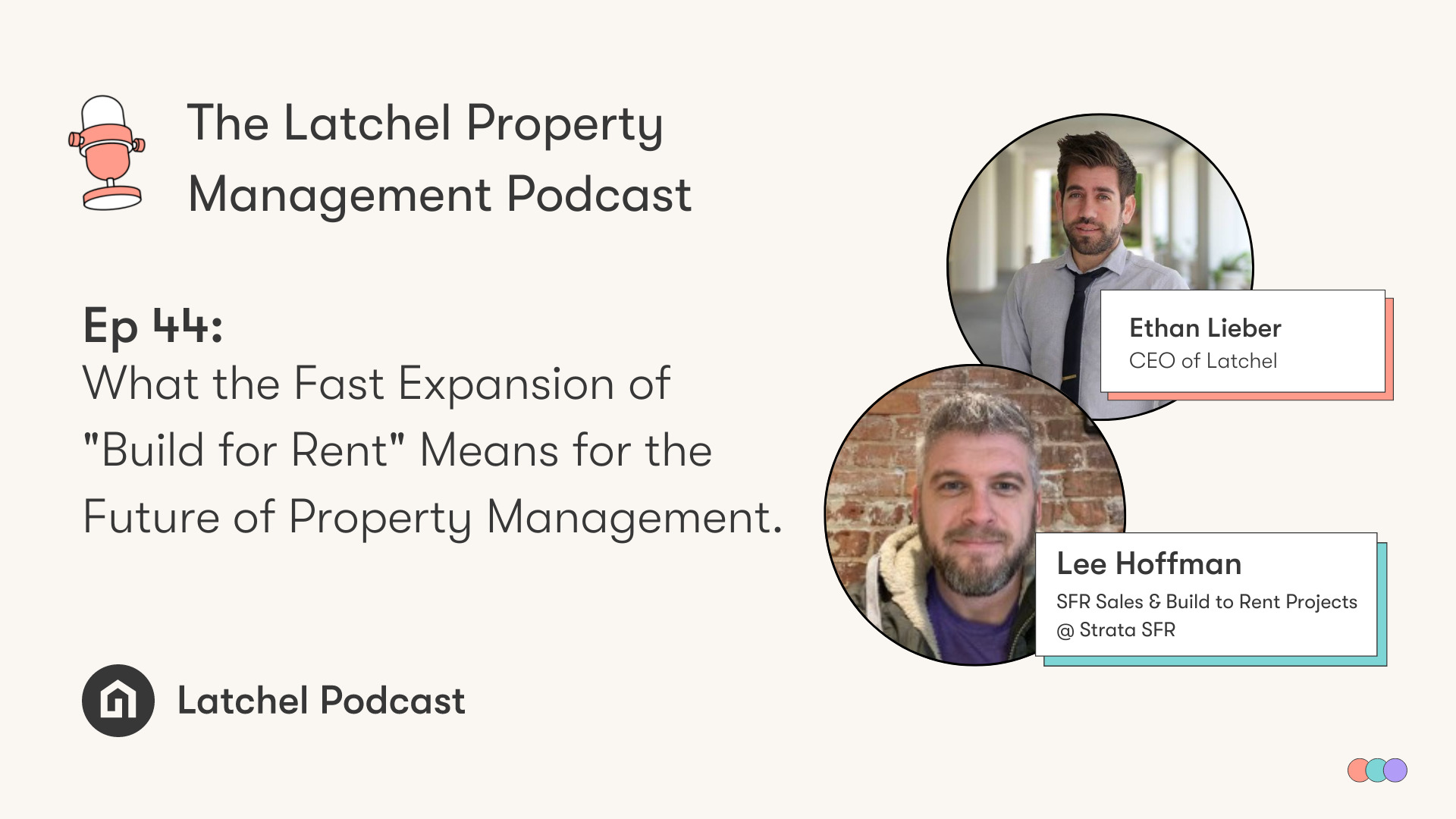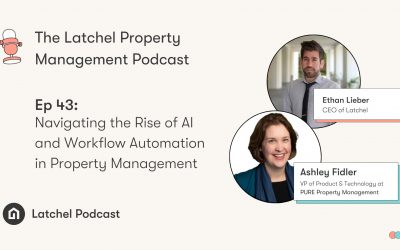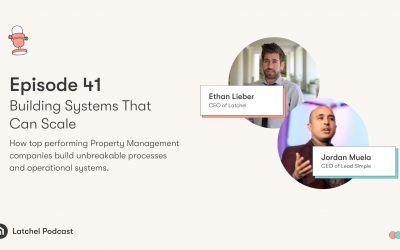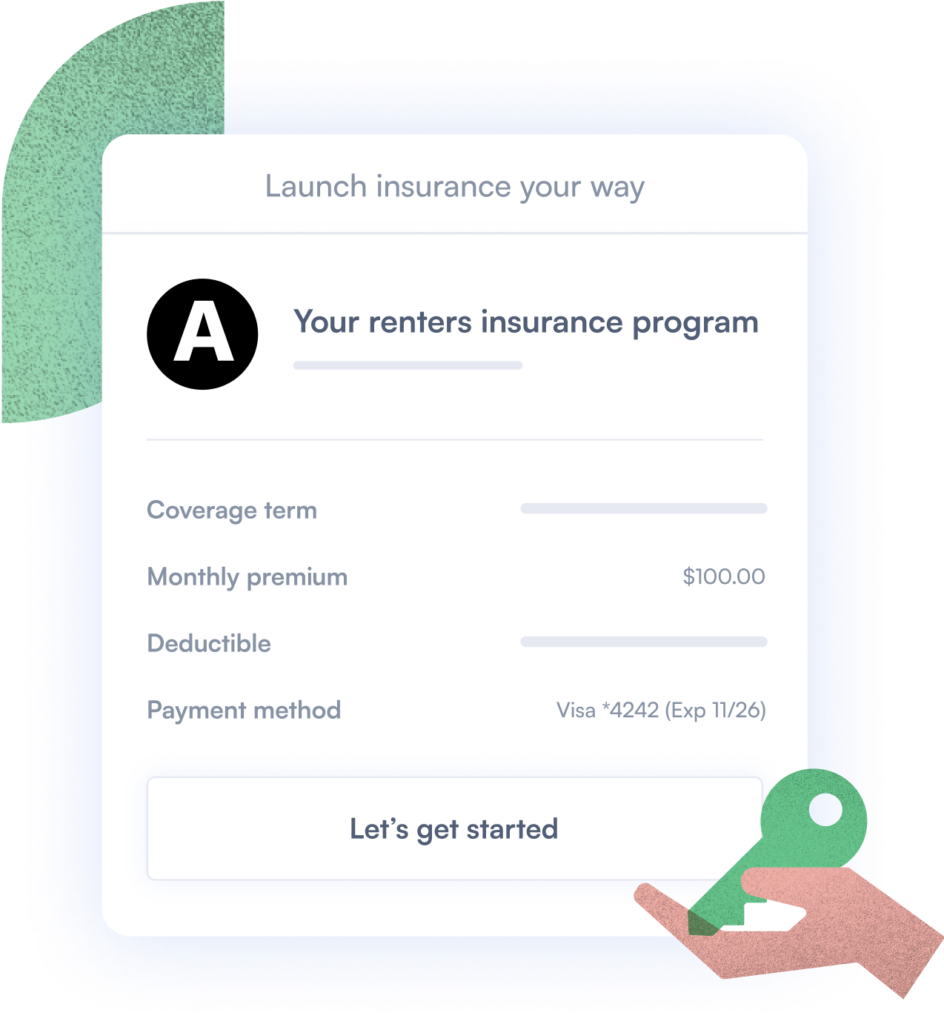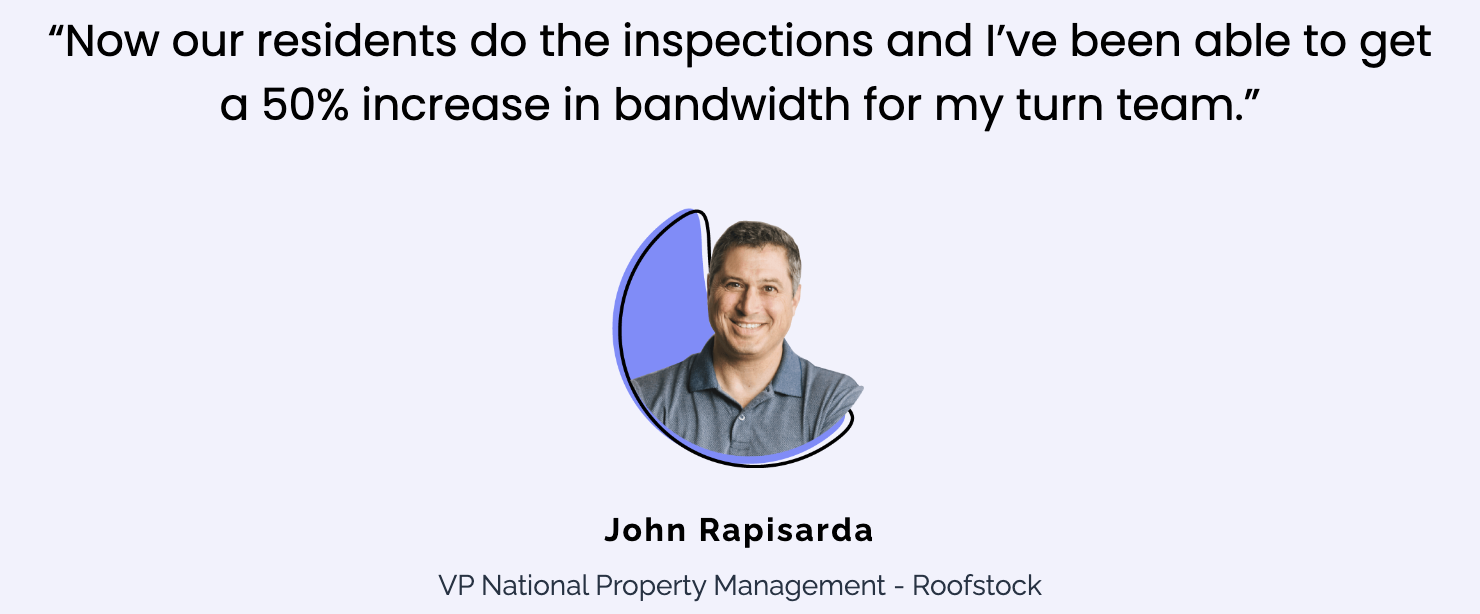The concept of Build For Rent housing & rental management is changing the landscape of the property management industry. In the past few years, Build For Rent communities have skyrocketed across the US as renters left large metros in search of the space offered in a Single Family home.
Strata SFR has quickly become a national leader in the fast expanding “Build For Rent” segment of property management.
So, we sat down with Lee Hoffman who works directly with Build For Rent projects at Strata SFR to learn the ins and outs of what this segment expansion means for Property Management companies nationwide.
Listen In:
More of a Reader? Read the full transcript below:
Ethan Lieber:
Hey everyone. Welcome to this session of the Latchel Property Management Podcast brought to you by Rent Manager. I’m Ethan Lieber, the CEO of Latchel, and I’m here with our guest today, Lee Hoffman, Single Family Rental Portfolio sales, and Build to Rent Projects at Strata SFR Lees. Come on to talk about his expertise in the build-to-rent space. We’re going to talk about what is build for rent and why we’ve seen such a significant increase in demand for it over the last couple of years. Really excited to dive in here and we’re going to touch on how Strata SFR has become a leader in this space and the metrics they use as good indicators for target markets. Welcome to the show, Lee.
Lee Hoffman:
Thanks, Ethan. How’s it going? Thank you for having me.
Ethan Lieber:
I’m super excited to have you here. We were talking about this before we started recording that we’ve had the opportunity to by chance meet at some of the parties Strata throws at the IMN Conferences.
Lee Hoffman:
Yeah.
Ethan Lieber:
I hope you guys make it out to the one in Vegas coming up because I’ll be there.
Lee Hoffman:
Yeah. I’m not sure yet if Adam’s going to be going, but I think a couple of guys from the team are definitely planning on going out.
Ethan Lieber:
And before we just dive into build for rent, what it is, what you guys do, let’s give the listeners some insight into the background behind all this. So tell us what brought you into this industry and got you working at Strata.
Lee Hoffman:
Yeah. So it’s an interesting story. I was a commercial diver before I got into real estate. So I was working for a company called Bisso Marine out of home in Louisiana. And we would go offshore and we were decommissioning oil platforms. I ended up did that for a year or two and I was always gone and I have a son. So it was hard not seeing him all the time. I mean, I was gone more than when I was in the Navy. So my family was watching my son at the time. So they lived in Charleston. So I was going there and I met this guy, Bobby Grove, who worked for at the time, a home builder called Pulte Homes. Have you ever heard of him?
Ethan Lieber:
Yeah.
Lee Hoffman:
He was like you’re a nice casual, charismatic guy and everything. And you like talking to people, you should try real estate. He showed me his tax return and he made $204,000 for the year. And I was like, “No crap, man.” So I immediately, at the time I wasn’t working for Bisso Marine anymore. I was working for VAE Systems, a global defense contractor doing ship repair work. I ended up called him up my supervisor and quit and then went and signed up for my real estate license right then and there.
Ethan Lieber:
Oh, wow.
Lee Hoffman:
Yeah. I’m one of those people as soon as you show me an opportunity, bam, I’m shifting gears and moving. So took my real estate class and just I tried getting on with the builder, but I didn’t have any experience or know anything about sales because I didn’t have a college degree or nothing like that. So I’m out there and I just started going to real estate companies worked for a couple of the big box brokerages, just doing regular residential sales, and then ended up, wanted to get new apartments because my dad growing up that was all he did. He worked for all the big box apartment companies, Greystar, MAA, all that. So we end up moving out to Charlotte and I’m on Instagram one day and I watched a GaryVee video and ended up, he was like, “Google, whatever you want to do look up the top 10 people in your area doing it.” So I just put in multifamily and came up with this guy, Greg Rand, who at the time was working for Renters Warehouse.
Lee Hoffman:
And ends up one of his videos, caught my eye and he happened to be in the same town I was in, which is in Charlotte. I’m seeing him make videos and he’s going over the numbers and all this stuff and he had a lot of good content. So I just direct messaged him and within a day he responded to me. Two days later, we ended up going and meeting and he brought me to his office and he was like, “Look, I know you want to do the apartment thing, but you know, people buy houses in bulk.” And I had no idea. I thought was just on the regular residential mind track with knowing loans and things like that thinking, well, if you were going to buy more than four houses, you would just buy apartments and I just didn’t think people would buy more than that because after you buy four houses with an FHA loan, you got to get a commercial loan after four.
Lee Hoffman:
So that was my way of thinking about it. He’s like, “No, no, no, no, no, no, it’s all wrong.” So he brings me in, we do training one day and he is like, “You know what? I’m going to have you meet this guy, Adam.” Which is Adam Stern, who owns Strata and I ended up, we walked in there the first 24 hours. We were kind of like butting heads because I was apartment guy and he was all about houses and he changed my mind really, really, really fast, and ended up working together for a few months. He left to start Strata. I left and left Renters Warehouse, went over to SVN and I hired two online assistants because I needed to find portfolio owners that Adam was launching Strata trying to get the build for rent thing going. And this is like 2019, early 2020 timeframe.
Lee Hoffman:
He ends up or I end up over that time, I hired two online Filipino assistants and we find 20,000 portfolio owners all over the Southeast. I had to find ways to get data. So I looked up every way you could possibly think of to try to find data that was free. And I was like, you know what? You can’t lie to the government. The government puts everything out public record. They got to have something on their websites. We dug for weeks and ended up finding all the websites, find all the data that we get from all these fancy companies that you’d pay for. We were defining it all for free. We amassed this 20,000-person spreadsheet and I ended up leaving SVN and there was a no-compete for me working at Renters Warehouse again for Adam. So once that was up, ended up partnering back up with Adam and never looked back, started building the team out and everything.
Lee Hoffman:
He had hired two people before I had came and worked with him. And yeah, once I came on board, we just started going to the IMNs and throwing the parties. And Adam has been going to IMN for the past 10 years. But with his new company and the whole team, we came out strong, we threw the party, and then that snowballed into now every event we throw huge, we find a whole nightclub and rent it out and throw a huge party for everybody. Because it’s expensive guy and we wanted some little bit more where you can meet people. It’s more friendly environment. It’s not so professional where we’re walking around trying to do business all day long. It’s more relaxed. We made it to where we can invite everybody, not just small selective parties.
Ethan Lieber:
That’s awesome.
Lee Hoffman:
And it’s just turned into to what it is now.
Ethan Lieber:
What’s crazy is the way your pathway into build for rent wasn’t obvious, but as you got more into residential and met Adam, the timing of it all seems super relevant because if you rewind too many years building to rent, wasn’t a huge thing. People were doing it, but it wasn’t really it’s own industry and classification like it is now.
Lee Hoffman:
Yeah. I never even thought about it to basically make a whole development, but make them all rentals. I mean, you’re no different than an apartment complex. It’s just, you’re giving everybody more space.
Ethan Lieber:
Yeah. I mean, part of the timing kind of makes sense too, like 2018, 2019, it starts getting bigger. 2020 you have the pandemic sort of changes the way people look at where they’re going to live. But I mean, from its early roots to where build-for-rent has come, do you have an opinion on what’s actually driving the demand for the build-to-rent market? Why has it become an industry of its own that’s so appealing?
Lee Hoffman:
I think people are… For build rent, I think people want the space. Some people, they don’t like doing their own maintenance themselves. People are getting lazier and lazier and lazier. We dog this a lot of the millennial generation stuff for having no skill in doing anything. Well, it makes sense why they’re going to renting. A lot of them don’t want to mow lawns. They don’t want to fix their roof or anything like that. So if they rent, you pay a little bit more, you can get all that stuff paid for by the rental company. And you know what? You don’t have to worry about, oh man, I got to sell my house. You break your lease and you leave. You be out in 30 days and there’s no ties to it. I think they like that. A lot of this generation, they like to be mobile. The whole go through their laptop lifestyle, where you can travel and everything. I mean, you got these kids out here making millions of dollars on crypto. They’re sitting on an app all day long.
Ethan Lieber:
Yeah.
Lee Hoffman:
They’re not committed to anywhere. They like that. I mean, look at it and this has, think about how marriage is considered a big thing and so is owning a home. Well, marriage rates are going down. They’re plummeting. A lot more people aren’t getting married. So the whole concept of having your forever home with your family and everything, that American dream thing is dying out. People are going more towards renting. Well, we got renting for everything. You can rent your car if you don’t… You can rent where people Airbnb your car out. They’re Airbnbing their houses out and they’re going and renting somewhere else while they’re renting their house out.
Ethan Lieber:
Yeah.
Lee Hoffman:
It’s easy. Everybody likes to third party, everything. We got Instacart that’ll do all your grocery shopping for you.
Ethan Lieber:
I imagine too, as housing prices have gone up, we were talking to the economist at Zillow about this too. That not only, I think that millennial group that you’re talking about has a different set of needs for the convenience factor. But on top of that, they are also much wealthier as far as renters go. And part of that’s probably because housing costs have gone up. So you potentially need to be wealthier now to buy homes, things like that. So you have people renting much longer that have a much different wealth profile than a decade ago. And when you have all that extra money you’re willing to pay premiums for more [inaudible 00:15:03] homes.
Lee Hoffman:
Exactly. And the big groups have come in and they pushed rent up a lot. So they know they can leverage it, especially when you find out you can hedge against with the rise in interest rates you know people are going to have to go to renting. The big guys, they track the data and you make it work your way.
Ethan Lieber:
And most of our listeners, I mean, our listeners are actually crazy diverse across the spectrum of how they do management. So many have heard of build for rent, build for rent’s going to be a new concept to a bunch. So for those that are less familiar, can you just give us just sort a 30-second definition on what is build for rent, and then what does the actual process look like for companies that do build for rent? Who are the operators in the space? How do you make a build-for-rent company work?
Lee Hoffman:
Right. So what build for rent is in a nutshell, if you look at a neighborhood like a D.R. Horton, instead of all the houses in the neighborhood being for sale, every one of them is owned by a management company that makes them all rentals. So instead of an apartment complex, it is a housing complex that’s all rentals is the easiest way to explain what a build-for-rent neighborhood is. And usually, they own enough of them to where they can control the HOA, which usually isn’t an HOA. I mean, it just depends on how they want to run it but yeah. So that’s basically what a build-for-rent community is in a nutshell.
Ethan Lieber:
Can you give folks sort of a sense for, is the management of that community also the ownership or is it sometimes an ownership will take the whole community, but then have a different company be a third party operator for it? What does that dynamic look like?
Lee Hoffman:
Yeah. So usually it’s a fund or a private equity group or a family office that may pay for the whole project. And usually, they’ll hire, if they don’t, some are owner operators and some aren’t they’ll hire a third property or third party property management firm to come in and manage the whole thing for them. But it essentially works no different than an apartment complex, no different. They’ll have some of them say they’ll take one house in there and make it a maintenance office and rental office all in one location. If they don’t have an outside office, but it’s good for the operators because it allows to have all your house for SFR, allows all your maintenance, everything is in one location versus scattered site. But yeah, I mean, as far as the management goes, it’s really no different than running an apartment complex-
Ethan Lieber:
Do you see… Yeah. And do you see the ownership dynamic being much different? I mean I’ve heard of a lot of private equity coming into the build-for-rent space, but what does the ownership of these communities typically look like? Are there a few big institutions doing it? Is it a little more fragmented?
Lee Hoffman:
Oh absolutely. It’s a lot of the bigger, bigger institutions and REITs are [inaudible 00:18:49] you got American homes for rent. Progress residential is another big one they’re owner-operators. We even D.R. Horton stuff and a lot of the builders now the big box guys they’re bringing on their own build for rent. D.R. Horton, they got their own thing. Who’s another one?
Ethan Lieber:
I’m surprised that D.R. Horton’s. You’d think the lanes were harder where you’ve got the builders, you’ve got the ownership and management.
Lee Hoffman:
Oh, well there, a lot of them are, we just did a call today earlier. Me and Adam, I don’t want to say too much because some of it might give some of the builders who listen to your podcast, a little insight on who might be wanting to work with us, but we just got off a good call with a big national they’re ready to rock and roll a build for rent space because they know everybody out here is doing it and they want to building their own arm. They want to partner with a team to just make sure all their deals work and get them going. And they’re ready to come in real strong because they know they’re coming in late to the game.
Ethan Lieber:
So this is a great segue because you’re talking about it sounds like a partnership call you just got out of. You guys have seen insane growth the last year and you’re considered a leader in this space. So I’d love for you to just briefly just tell all the listeners who might not be super familiar with Strata, what you guys do, but then I’d love you to follow it up and tell us what you guys did to become such a leader in the build for rent market.
Lee Hoffman:
Yeah. So man, yeah, how we became a leader was mainly due to Adam’s leadership and experience and a lot of us are really young guys. So we’re eager to learn. Adam’s done very, very well for himself. So seeing that every day and it inspires you to do good. We’re always doing good events. So it helps a lot and what was the first part of the question again?
Ethan Lieber:
The first part was there are going to be a bunch of folks that maybe haven’t heard of you or are totally not familiar with what Strata actually does.
Lee Hoffman:
That’s right. What we do. Yeah.
Ethan Lieber:
Yeah.
Lee Hoffman:
So Strata is a build for rent and SFR portfolio brokerage. So what we were just talking about, the building the communities for rent and that’s working with we’ll work with builders, developers, landowners, and private equity firms that will fund and build the whole project, and then they’ll bring in property management and rent it. We broker that whole process and then our other end is working with other either institutional or family offices or even small individual investors who own a minimum of five properties, usually in each core market. When they need to sell them, we broker that and sell them to the institutional funds or other investment firms that may be a lot smaller, maybe own couple hundred houses. So we’ll facilitate the transaction with them and it’s basically what it is. Just a bulk real estate agent is [inaudible 00:22:28] construction and scattered site.
Ethan Lieber:
Awesome. So a lot of our audience are customers of Latchel. A lot of folks are adjacent to the space, so they might not be customers of Latchel, but they want to stay on top of trends, kind of understand the market. I think there are two folks that are probably listening right now that their ears may be perked up. One segment would be all the third-party property management companies that use Latchel work with us thinking, well, this sounds like an interesting opportunity, or are there ways for me to either work with Strata or interface somehow with the build-to-rent ownership to be the management arm. So we’ll cover that one first and then I’ll jump to the second segment. But for that segment, do you have any thoughts or insights for them? So for a management company that specializes in third-party management that might be looking, how can I work more closely with these [inaudible 00:23:35] projects?
Lee Hoffman:
So for us, I guess as far as property management goes, we don’t really work with them too much unless they were going to send information over to us. But I know one of the ways to do it is as far as build for rent, I guess we would just have to find out if the operator or the owner is going to property manage them themselves. If they’re maybe looking to make a footprint in a new market where they don’t have a team there or anything, they’d be willing to take on a third party. So it’s mainly just networking with the funds and finding out who the actual owner-operators are and then who the ones that are just owners and it’s filtering through those funds that you’re going to make your partnerships to manage their properties. That’s probably one of the best ways. Going to IMN is a good way of doing it.
Lee Hoffman:
Just because you get to meet them there. So most of the funds, they kind of keep that information to themselves once they’re going to decide they’re going to purchase it. A lot of times we don’t even hear who they’re choosing or doing for the property management. It’s not even talked about. They handle that internally. So a lot of the best ways to do it is Google them. You Google and then give them a phone call and talk to with him, you get cold call, just like we do. Our CEO is he’s hitting the phone every day, just like us and he don’t let us make more calls than him.
Ethan Lieber:
That’s awesome.
Lee Hoffman:
Yeah. And he proves it. He proves it all day long. He’s one of my best friends. I have to schedule time on his calendar during the day to talk with him. I can’t just call him.
Ethan Lieber:
That’s incredible. I love that he still has his hustle onto that level.
Lee Hoffman:
Yeah. I mean it doesn’t stop. He’s always got something going on. I mean always, always, but just door-knocking and making phone calls is the best way to get these people to get in front of them.
Ethan Lieber:
Yeah. It sounds like it, whether they’re these giant ownership groups or even your smaller maybe DIY landlord with a few phones that might be looking for help, the fundamentals of the go-to-market tend to be the same. You pick up the phones, figure out how to get in front of them, and have the conversation. So then we also have a bunch of build-for-rent folks that listen to the podcast that actually use Latchel Services as well. And these folks are probably more familiar with you, but for the build for rent companies, when they’re thinking do I want to work with Strata or maybe other options, what do you say to them in terms of what sets Strata apart in terms of the value you drive for build to rent?
Lee Hoffman:
Right. So I think one of the ways that we do it better than a lot of the other ones, and we actually just were having this conversation earlier today is the way we do everything is all a traditional off-the-market method. We don’t put it up on LoopNet. We don’t list it anywhere and blast it out to 55 million people like most of the other companies do. We don’t do Facebook Live with it or anything like that. We have solidified our connections with the groups that we work with to such a level and have done so much work with them that we’re not here to play around.
Lee Hoffman:
We’re hitting the phone to try to get it sold and we’re not listing it and then not answering our phone all day long. You call most commercial brokerage, they’ll never answer your phone. You can call any one of us at the office we’re going to answer every time. Even the way our disposition process, our efficiency is really what our strength is because we’ll send a deal out and we’ll get usually all offers back within a week. Then after that, we’re in due diligence and yeah, we usually we can get… If it’s a scattered site, not a build for rent, but if a scattered site we can get it done in about 45 days.
Ethan Lieber:
That’s incredible.
Lee Hoffman:
And then [inaudible 00:28:31] market. What we do is we identify the top funds that we deal with and then other ones that are there and we find what assets they currently own. And as long as the portfolios match up, I mean, it may end up being a mix of selling certain ones in a portfolio to two or three different funds. But we already know from the track records of working with them, what they buy and we’ll tell you right away if it’s going to be junk or not, we don’t take every listing we get. Just like we don’t take every build-for-rent project we get.
Lee Hoffman:
We’ll probably get 20 in a week and take one or two of them. It’s just for the ones that we know we can place, we pick the best ones and place them because I mean the institutions and stuff they’re going to buy. They’re buying the best quality product out there. So we’ve got to service the best quality products for them. We do got guys that want small rehab portfolios and stuff like that and if it doesn’t fit their buy box or where they’re at, you can’t really do anything with it.
Ethan Lieber:
Yeah. Are there certain metrics or trends that you’re evaluating when picking a market, that’s going to be a good fit for the build-to-rent asset type?
Lee Hoffman:
Yeah. I mean, most of them, we’re looking for an expense load to not be too high. We’re looking for a specific cap rate in the way we underwrite everything is so every fund, depending upon the market they buy in is going to have different criteria. So once you work with them enough, you can know when you’re in a certain market and you look in that spreadsheet, you’re looking at the numbers, you can tell if the houses are going to work or not. So if the expense load is way out of whack, you’re like, all right, what’s going on? Did they spend too much money? Are they not spending enough money? What’s going on here? The numbers tell a story and then throws the cap rate out of whack. We’ll look at some houses and you’re like, all these, you’ll take the address and you look it up on Zillow and you say, “Is this institutional level housing?”
Lee Hoffman:
So all the little things you’d basically do for looking at a house or are things you’d look at for trying to find a rental. Most of the funds want and most of the people out here in the world want a three, two, or bigger. So you know if you get a spreadsheet in, that’s a bunch of two ones, that’s going to be hard for you to get away. It’s going to take a particular buyer to buy that. So you just narrowed your buy box. Are they thousand square foot or bigger? No. All right, cool. You narrowed it down even more. So you have to sometimes just looking at the bed, bath, and square footage, you’re going to know if you’re going to be able to move it or not. Then next thing is the vintage. Most want a 1960 or newer vintage, some don’t care as long as it’s rehabbed or anything like that, it just all depends.
Ethan Lieber:
How does that change when you’re talking about building communities or building properties for the express purpose of writing them out versus acquiring existing rental portfolios?
Lee Hoffman:
So that’s a little bit different. You’re still going to go through the same analysis on it because it’s essentially, they’re just at current stage their rentals that are not stabilized. They have nobody in them. So you’re going to and your expense load is going to be fine depending upon the area. The only thing that’ll make it build for rent, usually out of whack is high taxes. So there’s certain states that for instance, it’s tough in South Carolina and some areas because taxes are so high and South Carolina’s beautiful. A lot of people want to live there, but build for rent doesn’t normally work in too many areas. So you’ve got no expense load because they’re brand new products. You know your maintenance costs are going to be relatively low. It’s going to be fixing little dumb things.
Lee Hoffman:
Most of it’ll be more than likely covered under a warranty because they’re brand new. And you’re looking at it like you’re putting the money in now and building a brand new product. And depending upon what average hold time is with seven to 10 years if that maybe 12 before companies our firm gets ready to sell it off to somebody else. So they’re not even worried about CapEx for the next 10 years. It’s just minimal little maintenance requirements that you got to take care of for the year. But I think major is not going to be under your concern at that time. Most your major systems are 15, 20 years. It’d be sold and gone by that time.
Ethan Lieber:
Yeah. Kind of expand on that and this is probably a little bit of a two-parter of a question because I’m sure it’s different for existing communities, changing hands versus communities being built or in the process of being built. But we all know housing’s in short supply, there’s a crunch there. There’s all this demand for rental housing and at the same time, the actual home market is constrained as well. There’s these supply chain constraints we’re getting materials for new builds has been challenging. So I wonder from your guys’ perspective, sitting in this interchange between all parties in the purchase and renting these communities, are you seeing significant delays on projects due to these supply constraints and all this pent-up demand, or is business just better than ever because it’s creating these lopsided market environments.
Lee Hoffman:
So my opinion is well and obviously, yeah, we’re dealing with supply chain issues too. Every builder’s they’ve got their strengths on what they can and cannot get. So you’re dealing with that. A lot of our projects don’t start for a year and a year and a half out most of the time for your average build for rent, just because there’s a lot they got to do. But yeah, I mean, everybody out there is having issues. A lot of people are canceling their home purchases at these big box brokerages.
Lee Hoffman:
So because they’re getting called up saying, hey, your windows are still going to be delayed three months or whatever. So what that does is it ends up going back on the builder where now they got a lot, again with a house they’ve already started building. So they end up having to have something to do with it. So they’re going to end up selling them all out to build for rent. I mean, they were telling us about communities. I don’t want to say specific communities to give them the builder away, but they were talking about certain communities that they had, that a lot of people just came back and said, “You know what, we’re not going to do it anymore. Because they can’t afford it or because they’re going to rent. And now they got all these lots that they got to do something with now. So they’re going to give them to us.
Ethan Lieber:
So it sounds like then some of the supply-like supply chain issues are potentially actually sounds like maybe helping build for rent companies.
Lee Hoffman:
Yeah. The tough thing too is you got to think about it from a business perspective. If you got a builder that calls up and says, “Hey, I need…” Because you got to remember they’re selling houses one at a time to be built and then you have a build for rent fund that comes in and said, “We need 5,000 windows because we’re building 200 houses in a neighborhood.” Then Horton calls up and says, “Hey, we’re going to build one house today. So we need 30 windows.” Who do you think they’re going to prioritize? Not meaning in the way of the big box names, but you got to somebody that says, “I need enough windows to build 200 houses.” And then someone’s like, “I need to build one.” Who do you think they’re going to prioritize? So, I mean, it’s-
Ethan Lieber:
Building a couple hundred.
Lee Hoffman:
It’s just the way it works. You’ve got, and all it’s doing is coming through is one fund is buying all these houses. So they need all these windows versus the one family that comes in and says, we’re buying this and they order their windows. It’s just how it goes. They’re going to prioritize who is spending the most money.
Ethan Lieber:
Yeah.
Lee Hoffman:
And that’s the tough part with the supply chain. Then with just everything going up and people buying a house, they don’t want to keep getting delayed over and over and over and over again.
Ethan Lieber:
Then it sounds like if that’s maybe the tailwind that’s giving build for rent advantage seems like the headwind might be when we just have this interest rate increase of 75 basis points in June probably will continue increasing a bit. Are you seeing negative effects on project timelines that build for an activity as interest rates are going up or what-
Lee Hoffman:
A little bit. A little bit, a lot of them slowed down and had to rework their numbers and make sure certain projects were still going to work. Then some of them just slowed down buying a little bit, but I mean, most of our timelines are long. With build for rent it’s never a perfect timeline. Something always gets delayed by a little bit, regardless if it’s any supply chain issues, it’s just some things happen.
Lee Hoffman:
Sometimes you get a certain vendor that something happens and they end up getting kicked off the job and they got to find a new vendor to come in and fill in. So that gets delayed. I mean, it’s not a perfect schedule, like a transaction when you’re selling real estate is in scattered site lots or one home. It’s not a perfect timeline like that. Your delays are weeks or months at times. Yeah. I did a build-for-rent project with a firm Resicap in Waxhaw, North Carolina and it literally got delayed. It’s still delayed. We’re actually getting ready. All these lots were supposed to be finished in March no May. They ended up getting delayed the last 13 houses until October.
Ethan Lieber:
Wow.
Lee Hoffman:
Because of concrete issues.
Ethan Lieber:
Yeah. Crazy.
Lee Hoffman:
We poured the wrong size of slab.
Ethan Lieber:
Oh no. Okay.
Lee Hoffman:
It’s supposed to be strong enough to hold three-story townhomes and what they poured could only hold two. So they had to go. So no supply chain issue is at all nothing but they had to rip it all out and redo it. So that’s what we got-
Ethan Lieber:
How many homes did they have to do that for?
Lee Hoffman:
Just the last 13, but it was 46. Yeah. 46 townhomes total. And-
Ethan Lieber:
Yeah. Imagine with build for rent becomes critical that the suppliers, service providers you’re working with got their stuff together. Because if you do the wrong thing on a hundred homes, the cost of undoing that is far higher.
Lee Hoffman:
I’ve heard all kinds of crazy stuff. I mean, I’ve found mold in the houses and I mean, everything. People breaking into them and you name it, stealing air conditioners, washing machines. I mean, yeah, it’s wild.
Ethan Lieber:
Yeah. That’s the tough part with real estate. It happens everywhere. Build for rent, traditional rentals, things go wrong in the real world. You’re dealing with real supply chain problems, real product problems. You’ve got lots of different people in the mix to make it all work. I think that’s why so much opportunity in it too though because it’s not easy to organize this stuff well. You can build a company that like yours, that has the processes down, you’ve perfected things, you know how to derisk certain parts of the product experience. You can get things ticking and it’s probably why we’ve seen so much innovation in this space. I think I read a report recently that estimated build for rent as an industry or segment would triple in the next year. I mean, if that keep happening, I think we’re going to see a lot of innovation, but from your perspective, do you have a sense or a feeling for where most of the innovations will happen in this space and what build for rent’s going to look like in five or 10 years?
Lee Hoffman:
Oh, it’s going to be tech. I think you’re going to see build for rent start going to probably within the next five years, 3D printed model houses. I think you’ll see more manufactured housing going up because you’ll be able to throw it up faster. I mean, I think eventually materials are going to change. For instance, I talk to kids who are building apartment complex. This is in 2019 for what it was going to take for them to build the apartment complex out of wood per pound they were able to get this special, plastic material made in Norway and shipped over here for a dollar, a pound cheaper. This kid, he showed me a video of, he walked up to a beam that was a hundred foot long, a big roof truss, and grabbed it on one end.
Lee Hoffman:
And it looked like steel. He grabbed it on one end and pressed it up and these are building orders and he was strong enough to go over and lift a corner of the whole thing up. That’s how light this material is and that was an innovation a couple years ago. So I mean, you’re going to just see all different things start changing. Tech is going to be a big one. Look at when we go to IMN all the different service providers. They’re often all different tech and everything and all the guys call us, all the property management softwares and asset management software and how to generate leads and everything. I mean, it’s changing every day. I mean, we have a software platform that or a listing platform were going to be dropping. We’re coming up with things too.
Ethan Lieber:
Yeah.
Lee Hoffman:
Fun. It makes it fun. This is like going and learning about all the new things that we have to offer to people out here. It’s really cool.
Ethan Lieber:
Yeah. One of the things I love about the industry is there are so many parts to the end-to-end of what the big community management build for rent is that you can see innovations in the build side with materials. Sturdier but cheaper products like the guy you were talking about who built the steel truss that was light enough for him to lift one side up. You then have the whole operating model too, which is, how do you make the ongoing management maintenance of these communities easier? What technologies, services, tools do you inject to make the process of renting the communities easier and then providing resources for those residents that to have a great experience living there to continue retaining and paying higher rents because there’s more convenience?
Ethan Lieber:
The homes are new, they’re beautiful. You’re getting all these extra services. Resident benefits is sort of a trend generally in this space and I see build-for-rent communities with many packages that are couple hundred bucks a month. They include all this IoT. Internet technology like Ring, Nest. It’ll include obviously Latchel. It’ll include all kinds of crazy things. So I think there’s just so much innovation that can happen as you’re looking at the current trends. Are there certain things you’re keeping your pulse on or certain trends that you think maybe are going to be critical for property managers running build-to-rent to make sure they’re tracking?
Lee Hoffman:
Data, data, data. Literally, that’s all, is just the data keeps getting better and better and better and better and I pay attention to that. I mean, we all do. I mean, Adam’s real big on analytics and dashboards and things like that. Yeah, I mean, I’m paying attention to everything. I’m watching what the competitors are doing all the time and we always try to stay ahead of everybody.
Ethan Lieber:
From a data, perspective is there certain use cases or reasons that data’s going to be so important?
Lee Hoffman:
Yeah. It allows you to track every… It allows you to find the people you want to work with. It allows you to track certain trends and it allows you to… It’s like watching the candlestick chart on the stock market. You’re watching what everybody’s doing and you can, especially, if you’re tracking data and you’re looking for leads, you’re going to be able to find if you’re a property management company and you want to find more owner-operators, you’re going to be able to use that data to find owner-operators. You got companies like Adam and Black Knight and CoreLogic and Cherry, and they’re all providers out there. Your platform or their platforms provide you so much data on the company and the person and what they have that it just makes it like fishing in a barrel.
Ethan Lieber:
Yeah.
Lee Hoffman:
You know. But I know… Sorry, what’s that?
Ethan Lieber:
And that data is as far as I understand, correct me if I’m wrong here because I’m kind of making assumptions, but it sounds like this data’s critical to understanding the market that’s going to be right, that partners that you’d want to be working with and assuming the kind of profitability of the investments you’re making.
Lee Hoffman:
Absolutely. You’re able to identify everything, especially if you guys, for instance, like a property management company, you guys make a business plan. How many houses you want to get per day, per month, per year, per five years? Well, so you know how many houses, what your target is. So you just use the data to target all the companies that have way more than enough houses to give you guys a chance. So you would just use that data and just leverage your marketing against them on it to get clients because you’re going to be able to know everything. Where they have houses at and where you guys are in relation to them and it allows you to almost formulate your own proposal around where they’re at and everything and I think it just makes… It allows you to be more targeted and if you’re not going to be on board with the best fastest data, get out of the way, because we’re going to steamroll you. And it’s just how it works. How it works,
Ethan Lieber:
As sort of the brokerage and the middle here on these large communities and build for rent, are you guys leveraging all of this data on behalf of the folks you work with, or is there certain expectations that some of the decision-making they’ll go through, they should have components of the data and then you’re filling in gaps? How does that dynamic work with your clients?
Lee Hoffman:
Okay. So what we do first is, well, we get data. Data’s just an assumption. It’s not… We look at it as an assumption. It’s not factual. So it’s not an exact. So when we get a portfolio in or a build-for-rent project and it goes through our underwriting and shout out to Meg, our analyst. She’s an OG man. She does 50 deals a day. I mean, I don’t know how she does it.
Ethan Lieber:
Oh, wow. Okay. That’s insane.
Lee Hoffman:
She’s lightning fast and so we’ll get them in. Once it comes back from Meg, we look it over and then we schedule a call with the seller or owner and then we go over it with them and we let them know that everything on there is just assumptions to just like, are we close? You know? We’ll dial that whole spreadsheet in with them we go over it, how the institutions look at it, and everything like that with them. Then once we agree on a price and they okay it, then that’s when we hit the ground running five seconds later and we start identifying who our funds are going to be to buy it.
Lee Hoffman:
Then, yeah, and then we’ll send the package out to them and then give them a date to have an offer in buy, and then that’s usually as simple as it is, but once our underwriting is done the most important thing is for us to sit and review it with the owner. Make sure or owners that we’re all on the same page, as far as how we got our data and how accurate they think it is. Then we allow them time too if it’s a lot of houses, obviously, they may need a week or so. If it’s over 20 or 30 to go back, update condition scores on it and things like that to make sure it’s dialed in. Then we go back over it, make sure the numbers all look right, and then in are realistic and as long as we agree on that number, we move forward. It’s literally as simple as that.
Ethan Lieber:
I love that. Well, Lee, we’re coming close to an end. I want to ask you one question before I let you point folks to where they can learn more about you. You have a crazy interesting pathway to having gotten to where you are. And now that you’re here, I know building a business. It doesn’t matter what the business is in. It is brutal building a successful business, especially to the level of success Strata has gotten to. Do you have any words of wisdom or advice for folks coming into real estate looking to achieve similar levels of success? Anything you want to say to those folks before we go to wrap up here?
Lee Hoffman:
Yeah. Don’t give up, find someone who’s doing what you want to do, and do not listen to anyone else who’s not in the world. I let a lot of people influence me in the wrong ways and it made me slow down in real estate. It almost made me stop and I had to keep saying, you know what, screw them, I’m going to do it anyway, just because it was a weird thing where I felt like it was calling me because I knew I could change my life. So yeah, the main thing is just don’t give up. People see all the good and the success and the parties and stuff. I’ve had days and weeks where I’ve cried and being sad because deals have blown up and fallen apart. I’ve probably cried more in the last year than probably all of your viewers and listeners have in their whole fricking life.
Lee Hoffman:
It’s this major, major ups and downs. It’s some of the paydays on these are massive. So if you’re banking on them for a while and then it falls through, you’re like damn because you planned out all the cool things you were going to do in the future and you have to be okay with letting things go even though you see big numbers on it. Sometimes you just got to be able to walk away from it, but not giving up is the main thing I see a lot of people give up. A lot and I mean, I had brokers when I was starting telling me I should give up, I shouldn’t do it. He started his own real estate team and I’ve sold more real estate than his entire team has in their existence. And there was a guy that told me when I first started, I wasn’t to get anywhere and now his little team is like a fart in a wind.
Ethan Lieber:
That’s incredible. Definitely showed him. Man, that’s crazy.
Lee Hoffman:
You just got to be positive, not listen to people, be charismatic. Depending upon if you want to be a regular real estate broker or a commercial or do what we do and it is showing up, showing up. Showing up is one of the biggest things. You know, how many people tell me every day, Lee, I’m going to quit doing what I’m going to do and I’m calling everybody out who’s going to watch this that knows me. Every one of you who literally say all the time, “Lee, I’m going to quit my job. I’ll come work for you. How do I come work for you?” I’m like just show up. We almost don’t even care that you… Well, you have a real estate license or some skill to offer us now but for the most part, we needed people to train and stuff.
Lee Hoffman:
It was just like, just show up. Just show up. “Well, I’m not driving 30, 40 minutes to go there.” Well, I’m driving an hour 10 at the time to come up here every day and it’s a hundred percent commission. I’m not getting a salary and I get what I put in. So I was like, “All right, well, suck it up. You obviously don’t want it.” I’m doing it. I’ve dealt with being broke and struggling and everything and I made it happen. It took some time, but you have to not give up and you have to show up. Now I get to where I don’t have to put much effort in during the week. I don’t have to do the 80, 90 hours a week anymore. I do 15, 20 hours a week and I know what to do. I’ve identified who I need to work with and you just have to do it. You have to-
Ethan Lieber:
I think we got the title for your autobiography. Don’t give up, show up.
Lee Hoffman:
Yeah. And I mean, Hey, I don’t know if you’ve and I’ve been around a lot of crazy guys. A lot of people know David Goggins. I was in the Navy and when I was going through dive prep school he was up there as an instructor. He’s made me do a bunch of shit too and you’re getting around that guy. I mean, he’s one of the most influential people on the face of the earth now. I had the privilege of being around him and it’s intense and I’ve always seeked out the best people. That’s the other thing too. You got to seek out the best people and you got to be able to reflect on yourself and say, “All right, so who do I need to be to be around the best people?”
Lee Hoffman:
For Adam to take me serious and for me to work with him, I had to sit and go fricking reinvent myself to make sure this guy was going to be able to show me how to do. I had to sit and literally, what do I think I need to be or who do I need to be around him in order to get him to show me how to do this and take me seriously? So it’s, you got to come at it with a certain level of seriousness too. You got to be able to ditch the going out and getting beers with the buddies. I’ve sat and I’ve watched YouTube for hours while friends were out drinking and partying, having a good time. And now we’re the ones that are out throwing the huge parties and they’re not there because they wasted all their money going out. Now we’re able to do it and it’s not an issue.
Ethan Lieber:
So take this one as a compliment but if anyone ever asks me, what’s Lee Hoffman like the two words that are immediately going to come to my mind will be the epitome of grit and persistence. I love that your answer to this question, you are fascinating and the work you’re doing is incredible. I think folks are going to want to talk to you or at least learn more about you and learn more about Strata with your parting words here before we wrap, where can folks go to learn more about you and Strata SFR?
Lee Hoffman:
Yeah. So all the social media channels for Strata SFR, we got LinkedIn, Facebook, Instagram. My Instagram, because my name, everybody calls me Lee Hoffman, but my real name is Leland and I only get called Leland if I’m in trouble which happens all the fricking time. But anyway, so my Facebook is Lee Hoffman. LinkedIn is Lee Hoffman. My Instagram is @LeeHoffman. Yeah. Then my email is L Hoffman. So it’s L-H-O-F-F-M-A-N@stratasfr.com. No, I think that’s it on my links. Oh, my Snapchat. If you want to follow me on Snapchat is Leland326.
Ethan Lieber:
Awesome, Lee. This was incredible. Thanks so much for coming on. I learned a lot more about build for rent than I knew before. I have a feeling everyone listening knows a ton more than they knew before and anyone that’s in build for rent right now. Now has a new friend and contact in this space. I hope they reach out to you and if they’re not already definitely get in touch with Lee to learn about how Strata SFR can help you. Lee, thank you for joining. Thanks everyone else for tuning in. It was an awesome conversation. Really appreciate it, Lee.
Lee Hoffman:
Yeah, Ethan. Thank you for having me. This was a good time. Maybe we do another one. We’ll go little bit more in-depth or we can maybe we do one where it’s like a build for rent specific or an SFR-specific one.
Ethan Lieber:
Oh, absolutely. I would love that. We’ll definitely sync back up, get you connected for round two where we can go even deeper on a couple of these topics that we’ve touched on. Now for everyone listening, if you’re interested in more topics like this on property management, growth, scalability, build for rent, whatever it is, head over to latchel.com, subscribe to our newsletter, and stay up to date on all the upcoming podcasts, webinars, tactics for growing your management company. And even some of the oddball things that might just tease the brain and get you interested in other growth topics. So head over there, latchel.com, subscribe at the bottom of the page to our newsletter [inaudible 01:01:18]. Thanks, everyone for joining and we thank you again. It was an awesome conversation. Looking forward to round two

